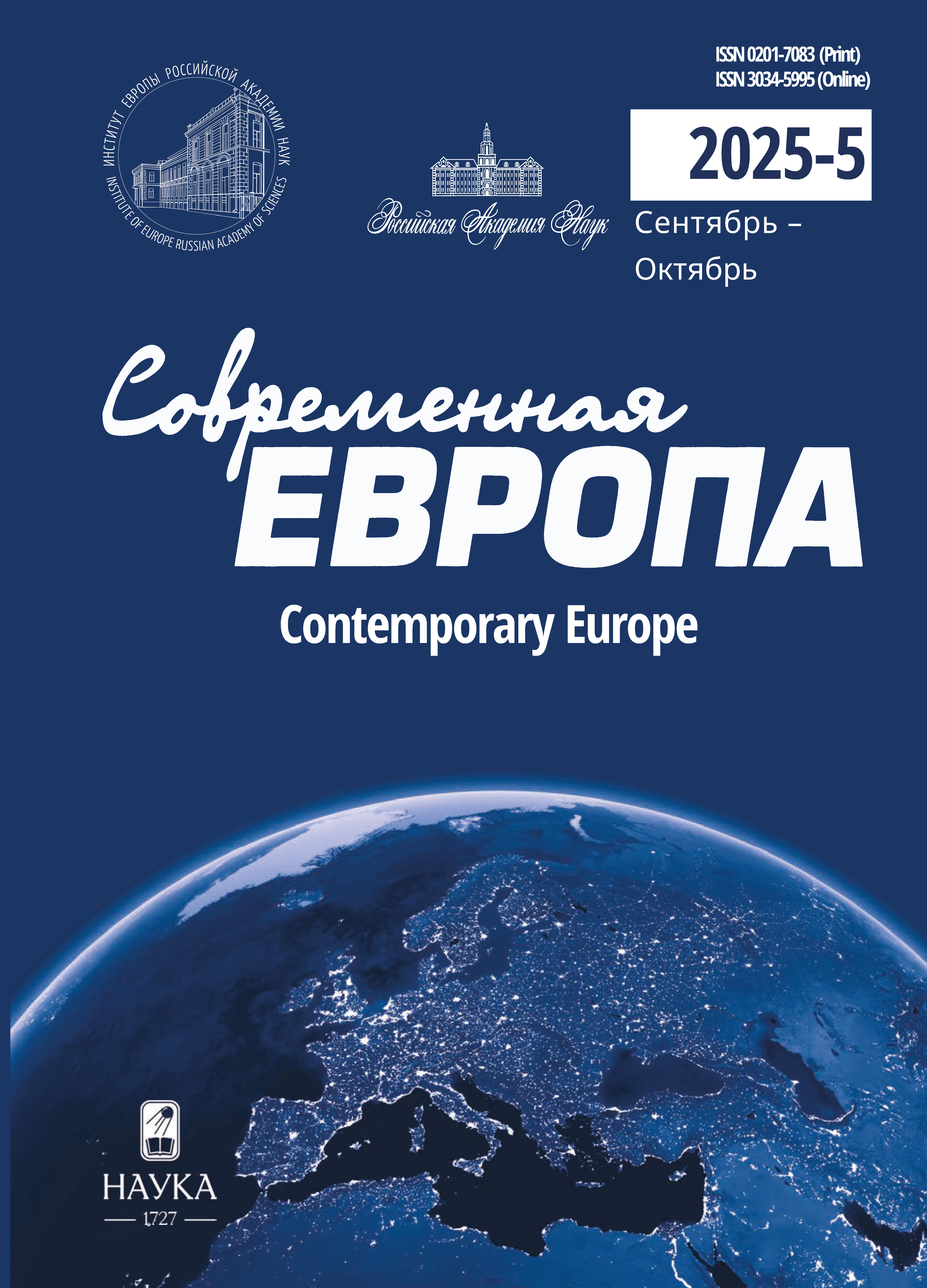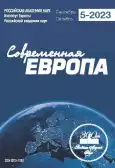Turkey - The West: exemplary antagonism?
- Authors: Avatkov V.A.1, Sbitneva A.I.1
-
Affiliations:
- Institute of Scientific Information for Social Sciences of the Russian Academy of Sciences
- Issue: No 5 (119) (2023)
- Pages: 31-43
- Section: Articles
- URL: https://rjsvd.com/0201-7083/article/view/652206
- DOI: https://doi.org/10.31857/S0201708323050030
- EDN: https://elibrary.ru/XZNGVY
- ID: 652206
Cite item
Abstract
The article examines the Western direction of Turkey's foreign policy and its relations with its three key actors: the United States, NATO and the EU. By its centenary, which Turkey is celebrating on 29th of October, 2023, Ankara seeks to approach the status of an independent supra-regional power. For a long time, Turkey has served as a "junior ally" of Washington, but in the era of the polycentricity’s construction, it has significantly changed its foreign policy priorities. Relations with the United States have moved from an "exemplary partnership" to the rank of an exemplary antagonism and the path to "united Europe" has turned out to be more problematic and not profitable for Ankara from the point of view of its national interests. The NATO bloc has lost its primary importance due to Turkey's development of its own military-industrial complex and growing contradictions with existing and potential members of the alliance. Nevertheless, the West still has a great influence on economic and other related fields affecting the well-being of Ankara. In this regard, building constructive relations with the West remains one of the tasks of Turkey's foreign policy. The authors conclude that under current circumstances the complete political sovereignty of Ankara and its separation from the West can only occur within the framework of the "independence through dependence" model since Turkey due to the lack of its own resources for crisis-free existence will need the support of other stronger world players, such as Russia and, for example, China.
Keywords
About the authors
Vladimir Alekseevich Avatkov
Institute of Scientific Information for Social Sciences of the Russian Academy of Sciences
Email: v.avatkov@gmail.com
Russia, Moscow
Alina Igorevna Sbitneva
Institute of Scientific Information for Social Sciences of the Russian Academy of Sciences
Email: a_sbitneva@mail.ru
Russia, Moscow
References
- Аватков В.А., Якимова Д.А. (2020) Отношения Германии и Турции на фоне миграционного кризиса. Современная Европа. № 3 (96). С. 51-60. DOI: http://dx.doi.org/10.15211/soveurope320205160.
- Дружиловский С.Б. (2005) Турция: привычка управлять. Россия в глобальной политике. № 6 (3). С. 48-61.
- Кудряшова Ю.С. (2010) Турция и Европейский Союз: история, проблемы и перспективы взаимодействия. Институт Ближнего Востока, Москва. 364 с.
- Туран И. (2011) Турция на подъеме. От неразвитой страны к региональной державе. Россия в глобальной политике. № 5 (9). С. 124-138.
- Altun F. (2022) Kuresel Belirsizlik Cag?nda Istikrarlast?r?c? Guc Turkiye. Paradigma Yay?nlar?, Istanbul, Turkey. 244 p.
- Baran Z. (2010) Torn Country: Turkey between Secularism and Islamism. Hoover Institution Press, Stanford, USA. 174 p.
- Cook S.A. (2018) Neither Friend nor Foe. The Future of U.S.-Turkey Relations. Council on Foreign Relations Special Report № 82. 28 p. URL: https://cdn.cfr.org/sites/default/files/report_pdf/CSR82_Cook_Turkey_0.pdf
- Davutoglu A. (2020) Sistemik Deprem ve Dunya Duzeni. Kure Yay?nlar?, Istanbul, Turkey. 391 p.
- Duran B. (2023) Secim Donemi Turkiye-Bat? Iliskileri. SETA. 21.01. URL: https://www.setav.org/secim-donemi-turkiye-bati-iliskileri/(accessed: 03.06.2023).
- Erdogan R.T. (2021) Daha Adil Bir Dunya Mumkun. Turkuvaz Kitap, Istanbul, Turkey. 211 p.
- Oran B. (ed.) (2013) Turk D?s Politikas?. Cilt 3 (2001-2012). Iletisim Yay?nlar?, Istanbul, Turkey. 885 p.
Supplementary files











